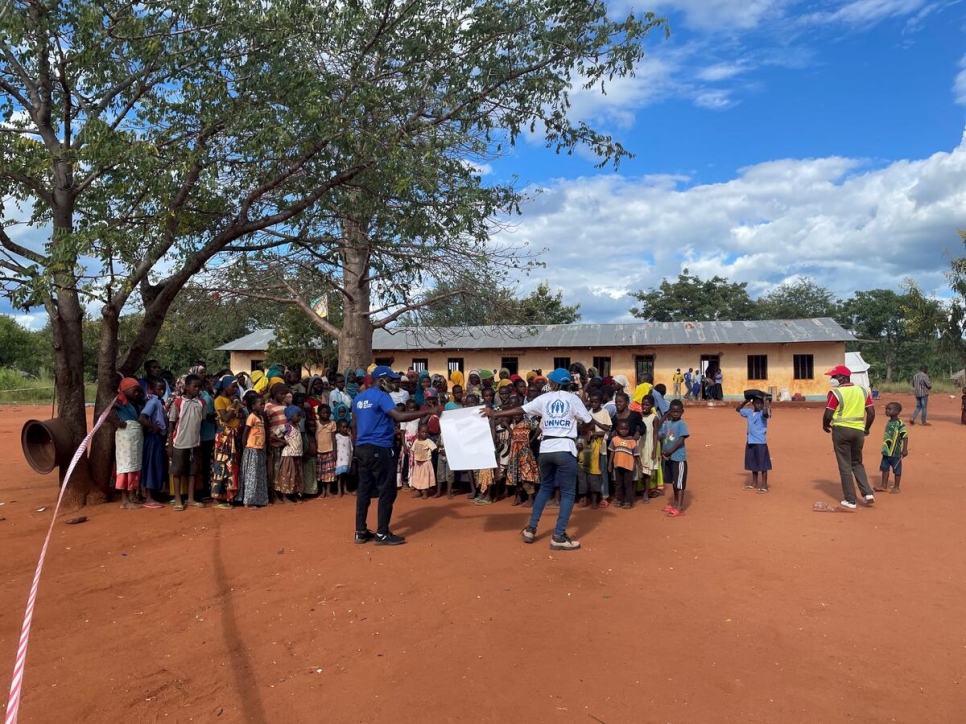The African Continent in Islamist Disorder
"It happens like this. When they catch men, they behead them. they kidnap children. They take women to the bush. When they catch old people, they beat them.""My house was burned down. I don't know where my mother is, or where my father is.""Tanzania does not want Mozambican people. We don't know why."Heka Amisse, refugee from Palma, Cabo Delgado, Mozambique"Those pushed back from Tanzania end up in a dire situation at the border.""UNHCR reiterates its call for those fleeing the conflict to have access to territory and asylum, and [for] the principle of nonrefoulement [no forced return] to be respected.""Refugees must not be forced back into danger."UNHCR spokesman"Tanzania used to be a world leader on refugees. In the '60s and '70s it not only let them in and let them stay indefinitely but it had pathways to citizenship, it had laws on inclusion into health systems, education, labour markets.""That allows richer countries and countries farther away from conflict countries to essentially do nothing, or do the minimal, and leave all the burden to neighbouring countries.""And the neighbouring countries, like Tanzania, are very understandably not pleased with this situation."Leah Zamore, Centre on International Cooperation, New York University
 |
| Displaced women and children wait at a building used as shelter after they fled attacks in Palma, Mozambique |
Islamists again. Islamists everywhere. Wreaking havoc, destroying towns and villages, creating hundreds of thousands of desperate refugees fleeing mass murder, kidnapping and slavery. Africa is overrun with Islamist terrorists. Refugees like Heka Amisse streamed out of their city of Palma located in the northernmost province of Mozambique bordering Tanzania. Increasing violence in the region brought the refugees for haven to neighbouring Tanzania.
And Tanzania is responding by enacting a program of return in direct contravention of international agreements, by returning these displaced people to the very country they fled in terror. Rwandan and South African troops have been sent to quell the violence along the border between the two countries where civilians are caught in the conflict pitting Mozambican forces against the Islamist terrorist hordes aligned with Islamic State's vicious ideology.
This is an escalating insurgency in Cabo Delgado, ongoing since 2017 where the Islamic State-affiliated terroristts have slaughtered some three thousand, forcing another 800,000 to flee for refuge. The recent discovery of great quantities of liquefied natural gas offshore of Palma has seen it become a hot spot of the conflict where French oil giant Total Energies has been stopped by the increasing attacks in Palma.
Heka Amisse and her husband, like thousands of other Mozambican citizens, were returned by the Tanzanian military to Negomano, a border town in Mozambique. The refugees are being forcibly returned to the country they fled. Over 9,600 people looking for haven in Tanzania were returned through the Negomano border since January. In a two-day period in June close to 1,000 people were forced back into the country they fled.
When Rwandans and people from Burundi and the Democratic Republic of Congo desperately sought refuge, Tanzania had responded by helping them in offering asylum. Tanzania was recognized in 2019 by Filippe Grandi, agency head of UNHCR as "one of the most important refugee asylum countries in Africa". That refugee asylum country with its outstanding humanitarian record is bitter about its recognition as a host country.
Lacking international financial support to assist them in integrating refugees into host communities, it groans under the weight of a responsibility left to it alone. Systems working with refugees fail to distribute responsibility of hosting fairly or evenly among nations, leaving the refugees to be coped with by a small number of developing countries where the refugees are concentrated in countries neighbouring those embroiled in conflict.
 |
| Displaced Mozambicans gather at Negomano Border point after being forcibly returned from Tanzania. UNHCR/Eduardo Burmeister |
Labels: Africa, Islamist Terrorism, Mozambique, Refugees, Tanzania, UNHCR

<< Home